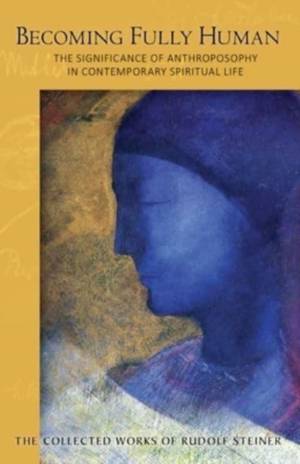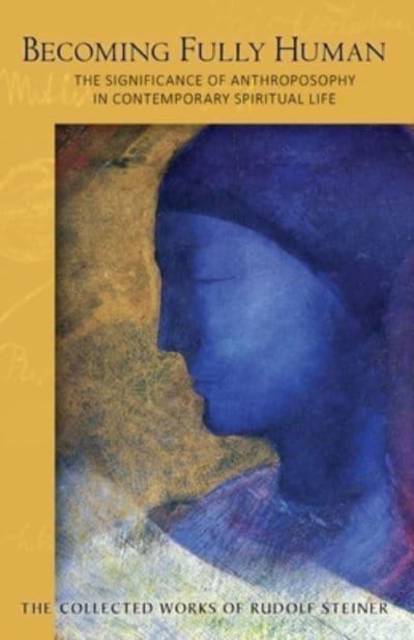
- Afhalen na 1 uur in een winkel met voorraad
- Gratis thuislevering in België
- Ruim aanbod met 7 miljoen producten
- Afhalen na 1 uur in een winkel met voorraad
- Gratis thuislevering in België
- Ruim aanbod met 7 miljoen producten
Becoming Fully Human
The Significance of Anthroposophy in Contemporary Spiritual Life (Cw 82)
Rudolf SteinerOmschrijving
6 lectures at The Hague, April 7-12, 1922;
A written report by Rudolf Steiner on the course (CW 82)
Published here for the first time in English, these six public lectures are among Rudolf Steiner's most inspired--and inspiring--explorations of Anthroposophy as a true science of the spirit.
Our age provides abundant explanations of the universe, its nature and evolution. But underlying most scientific modalities is a passive engagement with self and world, a taking-for-granted of the faculty of thinking, and, as a result, an indifferent arranging of phenomena through logical inference. But the question remains: What is thinking? A product of chemical processes in the brain, or a spiritual activity through which we become participants in a spiritual cosmos?
This is Steiner's starting point in all his work. He aims to cast off the unnecessary limits imposed on knowledge by a science that fails to examine its most fundamental epistemological premises. The lectures here are a remarkable contribution to this lifelong project--a compelling, eloquent, insightful study and affirmation of our very humanness.
Speaking to a youthful academic audience, Steiner does not confine himself to the arbitrary delineations of codified academic disciplines; on the contrary, he breaks down barriers, builds bridges, envisions a future academy in which the paths of knowledge are broadened through a genuine science of initiation to encompass our role as members and, ultimately, co-creators of the physical, soul, and spiritual universe.
This volume is a translation from German of Damit der Mensch ganz Mensch werde. Die Bedeutung der Anthroposophieim Geistesleben der Gegenwart (GA 82), 2nd ed., Rudolf Steiner Verlag, Dornach, Switzerland, 1994. Cover image: The Golden Cell by Odilon Redon, 1892. Oil and colored
chalks with gold, 30.1 cm x 24.7 cm. The British Museum, London.
Specificaties
Betrokkenen
- Auteur(s):
- Uitgeverij:
Inhoud
- Aantal bladzijden:
- 228
- Taal:
- Engels
- Reeks:
- Reeksnummer:
- nr. 82
Eigenschappen
- Productcode (EAN):
- 9781621482642
- Verschijningsdatum:
- 20/05/2022
- Uitvoering:
- Paperback
- Formaat:
- Trade paperback (VS)
- Afmetingen:
- 154 mm x 235 mm
- Gewicht:
- 303 g

Alleen bij Standaard Boekhandel
Beoordelingen
We publiceren alleen reviews die voldoen aan de voorwaarden voor reviews. Bekijk onze voorwaarden voor reviews.










